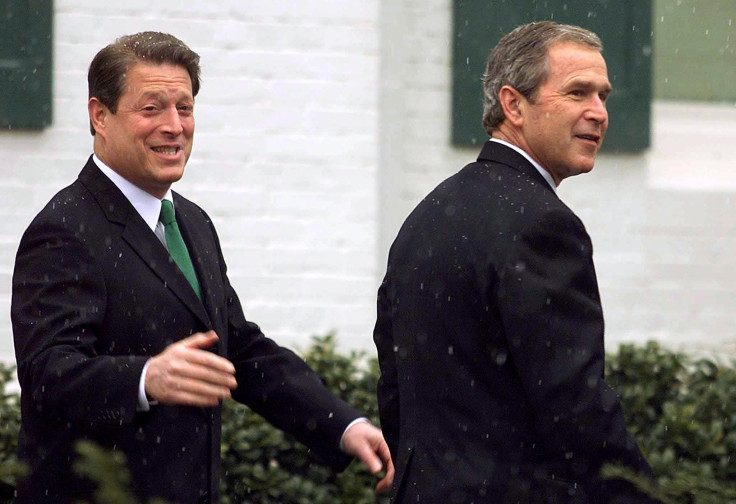Closest Presidential Elections In History: Will Trump vs. Clinton Provide Similar Drama To These Races?

With the latest presidential polls suggesting the battle between Hillary Clinton and Donald Trump is tightening, the possibility remains that the race for the White House could go on into the early hours of the morning of Nov. 9 and even beyond.
Such an occurrence would be nothing new in United States presidential elections. Indeed, the 2016 contest will be hard-pressed to match the drama of the below selection of the closest presidential races in history.
1876 Rutherford B. Hayes vs. Samuel J. Tilden
Just 11 years after the end of the Civil War, the battle between Republican Rutherford B. Hayes and Democrat Samuel J. Tilden once again stoked tensions between North and South. In the initial count, Tilden took not only the popular vote but the electoral vote by 184 to 165. However, the Republicans demanded a recount of votes in four Southern states, alleging that southern Democrats tried to suppress the vote from blacks and Republicans.
The two sides remained at loggerheads well into the following year. Then, two days before his inauguration March 4, Hayes was elected the 19th president of the United States after being given all 20 disputed electoral votes following the Compromise of 1877 which saw Republicans withdraw federal troops from the South and end their Reconstruction policies.
1960 John F. Kennedy vs. Richard M. Nixon
While John F. Kennedy remains one of the most famous and beloved presidents, debate rages to this day about whether he should have been president at all. Richard Nixon would go on to claim the White House eight years later, but he came agonizingly close to an earlier arrival to the Oval Office. Kennedy won the popular vote by just 113,000 votes, the closest margin in the 20th century.
That tightness was not reflected in the 303-219 electoral-vote margin, but there were strong allegations of voter fraud in Illinois and Texas, where Kennedy won by just 8,800 and 46,000 votes, respectively. Had Nixon carried those states, he would have come out on top in the Electoral College. Nixon considered challenging the results but accepted them for the good of the country. Trump’s comments suggest he would be unlikely to do the same.
2000 George W. Bush vs. Al Gore
One of the most famous elections in U.S. history, it was only the fourth ever, and first since 1888, in which the eventual winner lost the popular vote. The battle between Republican nominee George W. Bush and Bill Clinton’s vice-president Al Gore all hinged on the 25 electoral votes in Florida. As the polls closed on the night of the election, all the major networks declared that Gore had taken the Southern state. But as the night unfolded, those calculations fluctuated dramatically.
In the end, it took a 36-day recount and the Supreme Court to decide the 43rd president of the United States. By a 5-4 margin, the Supreme Court ended the recount in a decision that remains highly controversial. Bush’s official margin of victory in the state ended up being just 537 votes.
2004 George W. Bush vs. John Kerry
Just four years after the tumultuous race for the White House, Bush would endure another close fight in his attempts to get re-elected for a second term. Indeed, his win in the popular vote over Democratic rival John Kerry by just 2.46 percent was the smallest ever for an incumbent president.
The race all came down to the vote in the swing state of Ohio. Had Kerry taken the state he would have triumphed in the Electoral College. Instead, Bush officially carried it by just 118,775 votes, giving him an electoral vote triumph of 286 to 251.However, while he didn’t officially contest the result, Kerry, now secretary of state, later suggested that voter suppression has cost him the election.
© Copyright IBTimes 2025. All rights reserved.





















